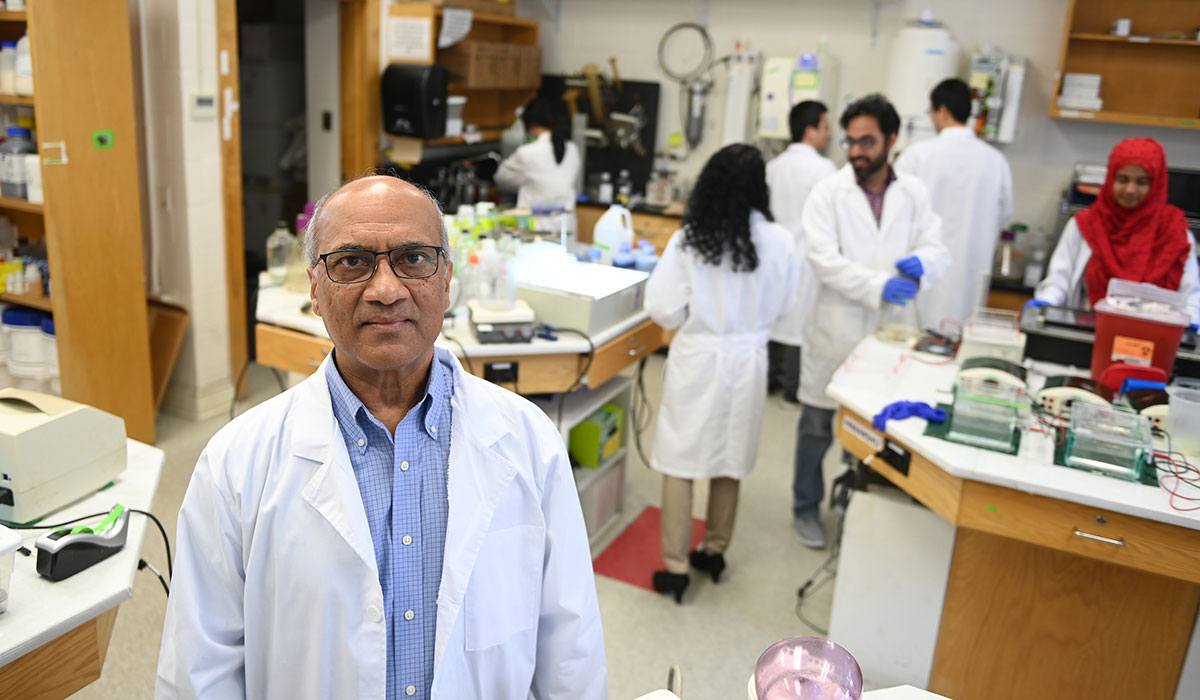

(WASHINGTON, D.C.) A universal vaccine design platform that can rapidly generate multiplex vaccine candidates is on the horizon, according to a study published this week in Science Advances.
A team of researchers at The Catholic University of America, led by renowned virologist Venigalla Rao, have published their findings in an article titled, “A Universal Bacteriophage T4 Nanoparticle Platform to Design Multiplex SARS-CoV-2 Vaccine Candidates by CRISPR Engineering.”
Rao and his team documented highly successful rates of protection in animal studies using a bacteriophage T4-COVID vaccine that differs greatly from those that are currently available. According to the abstract, the vaccine stimulated strong immune responses, blocked virus-receptor interactions, neutralized viral infection, and conferred complete protection against viral challenge. The T4 vaccine focuses on more proteins within the COVID-19 virus, thus providing a broader and more robust immunity against the virus, and potentially against the current and future variants.
In addition, the vaccine is adjuvant free (no chemicals), highly stable (possibly even at room temperature), cost-efficient to produce, and is being developed as a needle-free intranasal vaccine. These factors would make the vaccine especially useful in remote and disadvantaged countries, and for vaccinating children.
“The strong and broad immune responses stimulated by the adjuvant-free, multi-component, nanoparticle T4-COVID vaccine might serve as an effective booster vaccine or as a second-generation broadly protective vaccine for the unvaccinated populations,” the authors noted.
Rao, an elected fellow of the American Academy of Microbiology, is a professor of biology at the University, where he is the current and founding director of the Bacteriophage Medical Research Center. He has dedicated his career — more than 30 years at Catholic University — to studying bacteriophage T4. He discovered the T4 DNA packaging machine, including the functional motifs that power the packaging machine, the atomic structures of the machine, and the dynamic inner workings of single packaging machines in real-time. His work has resulted in 23 patents, and the design of a dual anthrax-plague vaccine that affords complete protection against two deadly bioterror agents. His discoveries could pave the way for new gene, cancer, and stem cell therapies.
At the start of the pandemic, Rao and his team put current research projects on hold to join the fight against the global pandemic. “We had the bacteriophage platform and the technology to incorporate any pathogenic material into a vaccine. We had also recently developed a powerful CRISPR genome technology that allowed us to engineer our virus in an accelerated fashion,” said Rao. “We knew that, as scientists, we had to contribute to end this pandemic and the suffering resulting from it. And, we should be well prepared for any future pandemics.”
Catholic University has partnered with Adaptive Phage Therapeutics (APT), a clinical stage biotech company, to translate the research to broader commercial availability. Phase one clinical trials are expected to begin in early 2022.
To access the paper, please click the following link: https://www.science.org/doi/10.1126/sciadv.abh1547